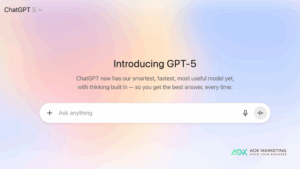
Websites and webpages exist in a wide variety of topic areas. There is virtually no area or genre in the world that is not covered by these internet points. If you manage a page or are considering adding one to your portfolio, it is important to understand the tools and information that will be helpful in achieving your determined or self-set goals. There are several services that will help your webpage succeed or provide it with a better opportunity to do so. Whether you have an advanced degree in technologies or not, you want to ensure that you have the resources at your disposal that will get you and your page on the right track—an especially important aspect to pursue for business pages. Website optimization is an important part of this process. Whether you are a new page or an established institution on the internet, ensuring that your website is optimized is an important part of creating an enjoyable website. Therefore, the following outlines what website optimization is, what it entails, and why it matters.
What Is Website Optimization?
Website optimization, in its most basic of definitions, is a method of designing, reestablishing, or updating a page in order that has the best possible presence it can on the internet. This term is often used in conjunction or synonymously with search engine optimization (SEO) because one of the goals of website optimization is to garner a higher ranking on a search engine results page.
This is an important process for anyone interested in garnering more traffic, but especially businesses that rely on a profitable webpage and those that have an ecommerce foundation. The reason? The higher the ranking on search engine and the more optimized a page is, the more likely it is to entice a positive perception among visitors, see more traffic, and, ultimately, garner sales.
Though this was a quick explanation of website optimization, it should give a better idea of what the process’s end goal is. Yet, to think of it as a singular service is not to provide a complete picture. That is to say that if a webpage wants to be fully developed, fully established, and fully optimized, there are conglomerations of activities that need to take place, including—but not limited to—the following.
1. Traffic Behavior
One of the most important parts of website optimization is to understand the behavior of your clientele. Your website traffic is coming to your website for a reason and they are acting when they are on your site in some fashion. You need to know and understand this in order to get the most from your website and truly optimize it. Therefore, the following list focuses on what you need to know and understand about your clientele.
a. How Are They Getting There?
An important part of your traffic’s behavior is just how they are getting to your site. Are the using a particular link, an advertisement you placed, or another mechanism? Knowing this will provide you with a wealth of information. Firstly, it will tell you what is working in your marketing. For instance, if you put a great deal of money into an internet marketing campaign with ads on Google, you will want to know if that investment is worth it. Also, you want to understand how your web traffic is getting to your page so that you can provide them with the information that they want when they get there.
If a blog post with incorporated link on a medical site, for example, appears to be the driving force, then, it may be time to increase your medical discussions as your traffic seems to be interested in that topic. This analysis will help you to better target your audience and meet your traffic’s needs and it is something that your website optimization services should help you to understand.
b. Behavior On Your Site
As important to understanding how your traffic found you is to understand what it is that they are doing when they enter your site. For instance, you will want to know what tabs they are clicking on and whether or not you are providing them with goods and services that are of benefit to them. This is an important part of website optimization because it will allow you to understand how to best create, improve, or update your page so that others will take the action that you want when they come to your page.
c. Garnering
Information Another reason that you want to know and understand your consumer behavior is because you want to capitalize on the information that they can provide you. For instance, if you see that you are gaining several thousand visitors a month, but have no way of reaching out to this consumer base because no information was provided, it may be time to add some more information gatherers to your page such as contact forms which will be discussed later as part of website optimization comprehensive services.
2. User Friendliness
No one wants to visit a site that is hard to use or fails to provide clear instruction on what to do on the page. Your page is no exception to this rule. Whether you are promoting a product or are garnering support for a cause, even the most lofty and worthy of topics covered will not be well received if the site itself is hard to navigate. Therefore, an analysis of user experience and user friendliness should be considered an essential part of website optimization.
Your page, if being analyzed by a third party or internal service provider, should analyze how clearly your content is displayed and how easily your traffic can find what it is that you offer. A fully optimized website will take into consideration the aesthetic value of a page, graphic content, and the overall ease of tab and internal link access. If these are lacking, struggling, or unaffected, then, your traffic is likely to move onto the next.
3. Your Content
As important as finding content on your page is providing desired content. Your traffic is not simply going to want to see your products or words displayed. On the contrary, they will want to find value in that content. To find the most valuable of content, your website optimization services should provide the following information and feedback.
a. Relevant
Your content should be relevant. It should speak to the current trends in the industry you cover and it should focus on the latest of information. Stale, old, or outdated content can quickly make your authority in a particular area seem weak. Authority, or the perception of it, is a quick way to see your page become a repeat location for an individual rather than a one-time stop. If individuals believe you are the authority, they will act accordingly and come to you for advice or information in the future. Therefore, provide relevant and timely content across your internet platforms to remain fresh and authoritative on your site.
b. Accurate
Further, you want your page’s content to be accurate. Visitors want to know that you are using the right terminology, spelling words correctly, and are providing them not with just information, but information that is accurate. This will require some effort on your part to ensure that the content is getting everything it espouses to get correct actually correct. But, it is well worth it in establishing an optimized site.
c. Keywords
The aforementioned content attributes for a successful website optimization are all part of the algorithm that will get you a higher ranking on search engines such as Google. But they are not the only part. If you want to garner a higher listing on a search engine results page, you need to make sure that you are using terms within your page that are commonly being searched. For example, if you are selling mittens, you may wish to use words like “where can I get mittens?” or “mittens for sale” on the page because these are likely to be terms used in searches by your potential consumers.
But, beware, even if you know what words are being searched, simply adding them to your page a million times will not increase your traffic from these sites nor will it get you a higher listing. Search engines like Google have raised the bar in how they rank sites and take into account not only these keywords, but how these keywords are used. Therefore, if you want a fully optimized site, make sure that your keywords and search terms are used in a fluent, necessary, and unobvious way.
4. Competition
A truly optimized webpage is more than just functioning and knowledgeable within a vacuum. On the contrary, it knows and understands the sphere in which it is working and aims to be the best. Those that have business pages, for example, have direct competitors. They have competition that is vying for the same clientele and the same web traffic. Website optimization should look at these competitors and their business pages so that they know and understand where they stand. The aspects that they should look at for an optimized page are search engine rankings, user friendliness in comparison, and the effectiveness of said webpage.
a. Search Engine Rankings
An optimized website needs to know where they rank on the search engine sites in relation to their direct competitors. For instance, is there a webpage consistently listed above your page? Is there someone that has advertisements that pop up before yours? What types of searches result in a competitor’s page being ranked higher? These questions can be hard to answer if there is not a website optimization company or third party administrator analyzing this, highlighting another reason why it is important to ensure that there are qualified people doing the work on your behalf if you are unable.
b. Their User Friendliness
The user friendliness of a page, as aforementioned, is highly important to retaining traffic. A page that is difficult to navigate can quickly see an individual exit without any conversion or action. Therefore, those that want to compete for web space need to know, evaluate, and understand where their user friendliness ranks in comparison with their competitors. Analyzing where they succeed and where they fail can help to better establish your optimized page.
c. Consumer Satisfaction
It is important to allow for feedback from your clients and web traffic. This information can greatly help in allowing you to know where you stand in relation to your competitors. Feedback, if done in the right format and in the right online setting, does more than just allow for a page and its traffic to have a dialogue. It allows for real understanding of the success of that page. For instance, if your page is functioning well in comparison to other pages, knowing that is important. If it is failing, your consumers will let you know. Provide an avenue for this sharing as part of your website optimization and you can greatly reap the rewards.
5. Tracking
Your website needs and relies on traffic. There is no question. As noted, it allows you to share your information, beliefs, organizational goals, and garner sales. This can be done through a direct sale via your site. It can also be done in the long-term as well. One way to do this is by allowing and providing tracking devices and information solicitation on your site. This includes things like email lists, newsletter signups, or other pop-ups that provide the opportunity for your traffic to share their personal information with you. By getting an email address, phone number, or even an address, you can market your page in the future via direct mailers or email blasts. As such, ensuring that your website optimization processes result in some type of tracking and information gateway, you are truly building a better page and brand. This can reap dividends in popularity, customer access, and potential future sales. Consider this, then, when you are talking with your third party provider or if you are going to complete the website optimization process yourself.
About The Author
Dave Burnett
I help people make more money online.
Over the years I’ve had lots of fun working with thousands of brands and helping them distribute millions of promotional products and implement multinational rewards and incentive programs.
Now I’m helping great marketers turn their products and services into sustainable online businesses.
How can I help you?




